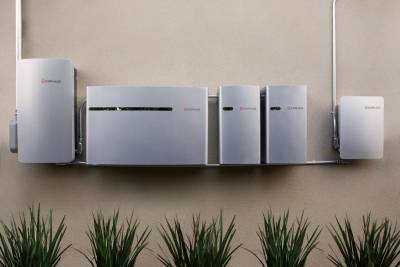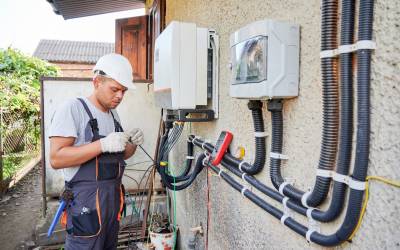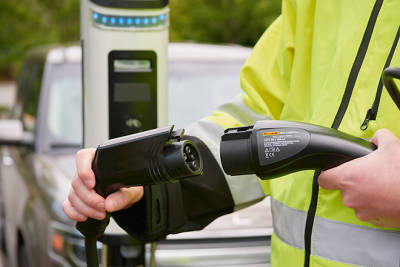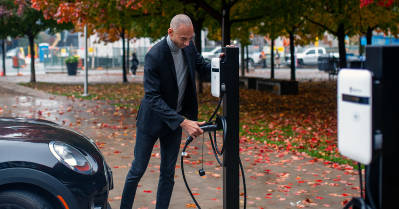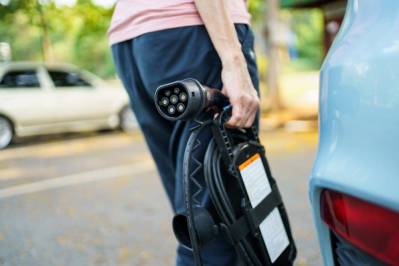Discover HouseIdea's detailed guide on EV charger installation in Sacramento. Learn the crucial requirements for safe, efficient, and compliant charging in your journey towards eco-friendly transportation.
The Basics of EV Charger Installation
EV charger installation requirements encompass a set of guidelines and standards that must be followed when setting up an electric vehicle charging station. These requirements can vary depending on factors such as the type of charger being installed and its location. Adhering to these requirements is fundamental to guaranteeing a seamless and safe charging process.
Why Are Installation Requirements Important?
The importance of complying with EV charger installation requirements cannot be overstated. Here are some key reasons why these requirements are vital:
- Safety: Meeting installation requirements ensures the safety of both the charging station users and the property.
- Efficiency: Properly installed chargers function efficiently, minimizing charging times and energy waste.
- Functionality: Compliance ensures that the charger operates as intended, providing reliable charging for your EV.
- Warranty and Insurance: Non-compliance can void warranties and impact insurance coverage, leading to potential financial risks.
Types of EV Charger Installation Requirements
EV charger installation requirements can be categorized into two main types: residential and commercial.
Residential Charger Installation Requirements
For residential EV charger installation, there are specific considerations that must be taken into account:
- 240-volt Outlet: A dedicated 240-volt outlet is typically required for Level 2 chargers in homes. This higher voltage allows for faster charging and is essential for daily EV charging convenience.
- Proper Wiring: The wiring used for the installation must meet safety and capacity standards to support the charger's power needs. This ensures that the electrical system can handle the load without overheating or safety risks.
- Location: Choosing the right location for the charger is crucial for accessibility and safety. It should be easily accessible for you to plug in your EV and should be installed in a way that minimizes any tripping hazards or obstructions.
Commercial Charger Installation Requirements
Commercial charging stations have their own unique set of requirements due to the higher volume of users and charging units:
- Load Management: Commercial installations often require load management systems to distribute power effectively among multiple charging units. This ensures that the available power is allocated efficiently to prevent overloads and disruptions.
- Accessibility: Commercial charging stations must be accessible to all users, including those with disabilities. This includes provisions for ADA-compliant charging stations and clear signage for easy navigation.
Compliance with Local Regulations
Compliance with local regulations is a critical aspect of EV charger installation. Failure to adhere to these regulations can result in safety hazards and legal complications.
Local Building Codes and Permits
Adhering to local building codes and obtaining the necessary permits are crucial steps in ensuring a compliant installation:
- Code Requirements: Local building codes often include electrical safety standards and proper wiring specifications that must be followed during the installation process. These codes exist to protect both the property and its occupants.
- Permitting: Local authorities may require permits to ensure that installations meet safety and zoning regulations. Obtaining the necessary permits is essential to avoid legal issues and ensure that the installation is compliant.
Utility Regulations and Approvals
Utility companies also play a significant role in approving charger installations, as they are responsible for providing the electrical power needed for charging:
- Utility Requirements: Different utility companies may have specific requirements for EV charger installations. These requirements can include voltage standards and load management considerations to ensure that the grid can support the additional electrical demand.
- Navigating Utility Rules: Understanding and complying with utility-specific rules is essential for a smooth installation process. This may involve working closely with the utility company to obtain necessary approvals and meet their standards.
Preparing for EV Charger Installation
Electric Service Assessment
Prior to installation, conducting an electric service assessment is crucial:
- Evaluating Electrical Service: Assessing your existing electrical service is essential to determine if upgrades are needed to support the charger's requirements. This assessment helps ensure that your electrical system can handle the additional load without issues.
Selecting the Right EV Charger
Choosing the appropriate charger for your needs is a critical decision in the installation process:
- Charger Capacity: Consider the charger's capacity to ensure it meets your charging needs. Different EVs may have varying charging requirements, so selecting the right capacity is crucial for efficient charging.
- Compatibility: Ensure that the charger you choose is compatible with your EV's requirements. Compatibility ensures that your EV can safely and effectively charge from the selected charger.
- Smart Features: Explore chargers with smart features for added convenience. Smart chargers often allow you to schedule charging times, monitor usage remotely, and optimize charging for cost savings.
The Installation Process
Hiring a Professional Installer
Professional expertise is essential for a successful and compliant installation:
- Qualified Professionals: It's highly recommended to hire expert EV charger technicians for the installation. These professionals are well-trained and experienced in installing chargers safely and ensuring compliance with all regulations.
- Benefits of Professionals: Professionals not only ensure compliance but also guarantee that the installation meets all safety and functionality standards. Their expertise minimizes the risk of errors and complications during and after installation.
Steps in the Installation Process
Here is an overview of the installation process to give you a better understanding of what to expect:
- Site Evaluation: The installation process begins with a site evaluation. This involves assessing the installation site to determine the best location for the charger. Factors such as accessibility, electrical infrastructure, and user convenience are considered during this evaluation.
- Wiring and Connection: Once the site is chosen, the charger is properly wired and connected to the electrical service. This step requires careful attention to detail to ensure that all connections are secure and compliant with regulations.
- Testing: After installation, thorough testing of the charger is conducted to ensure it operates safely and efficiently. Safety testing checks for proper grounding, insulation, and protective features, while efficiency testing verifies that the charger performs as expected.
Post-Installation Considerations
Testing and Certification
After installation, testing and certification play a vital role in ensuring the charger's ongoing performance and safety:
- Safety Testing: Safety and performance testing are performed to ensure that the charger operates correctly and poses no safety hazards. This testing is essential to provide peace of mind to both charger users and property owners.
Regular Maintenance and Upkeep
Maintaining your charger is essential for its long-term functionality and reliability:
- Regular Maintenance: Following a maintenance schedule is crucial to keep your charger in optimal condition. Routine maintenance includes checking for loose connections, cleaning, and inspecting components for signs of wear or damage.
Understanding and complying with EV charger installation requirements ensures a safe, efficient, and compliant charging experience for both residential and commercial installations. Prioritizing these requirements is key to embracing electric vehicles and contributing to a sustainable future. Contact HouseIdea, your trusted EV charger installation contractor, and rely on our expert EV charger technicians for a seamless installation process.
Conclusion
Understanding EV charger installation requirements is pivotal to a successful and safe charging experience. Prioritizing compliance with regulations, choosing the right charger, and hiring qualified professionals are key steps in the process. By adhering to these requirements, you contribute to a greener future while enjoying the benefits of electric vehicle ownership. Contact HouseIdea, your trusted EV charger installation contractor, and rely on our expert EV charger technicians for a seamless installation process.
Tags: ev charger installation requirements,



